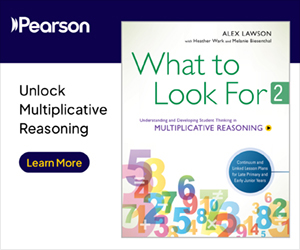Continuous learning isn't just important for people looking to advance their careers -- it's crucial for fueling a workforce that can power a changing economy. UBC's micro-credential programs provide a flexible, affordable way for anyone, regardless of where they live or education level, to get skills needed for the current and future job market.
Micro-credentials are focused programs designed to teach practical, career-ready skills. Offered through UBC Extended Learning and many faculties at UBC, these programs are a solution for professionals looking to quickly gain skills in areas ranging from artificial intelligence to climate change, to writing and communication.
UBC offers more than 60 different micro-credentials programs, with that list being regularly updated to meet the evolving demands of today's job market. In the past 12 months, UBC Extended Learning has awarded over 1,000 micro-credentials to students.
"We're committed to offering programs that meet the current and future needs of the workforce," said Larry Bouthillier, executive director of UBC Extended Learning. "Some of our most exciting offerings right now are in artificial intelligence, which is rapidly changing industries across the globe."
Other unique and emerging fields that students can immediately dive into include Equitable Systems Design, Climate Action Planning and Food Safety Management.
The contemporary nature of the training is what got Mary Carmichael interested in UBC micro-credentials. Mary recently took UBC's Cybersecurity Strategy and Risk Management micro-credential and found the courses to not only be interesting, but also useful in developing critical skills she uses daily in her career in enterprise risk management.
"I loved how targeted and focused the courses were," said Carmichael. "Our instructor did a great job of assigning us with real-world projects to build our skills, things like risk assessment exercises or writing cybersecurity policies. The courses were really engaging, and the skills I learned are very transferable and relevant."
"Micro-credentials are ideal for anyone looking to advance their careers in a short amount of time," said Bouthillier. "The beauty of these programs is that there's no lengthy application process -- simply register and you're ready to go. This makes them accessible to professionals of all backgrounds, regardless of previous education levels and they can be completed without interrupting work hours."
"The online learning format creates flexibility for learners in smaller communities or remote areas, breaking down barriers to higher education. Not only do the students benefit directly, they also help spread UBC's economic impact into rural B.C. and beyond."
Dr. Benoit-Antoine Bacon, UBC president and vice-chancellor
Typically comprised of one to three courses and featuring at least 50 hours of instructional classes, UBC's micro-credentials are designed with working professionals in mind. Most programs are available online and offered asynchronously, meaning students can learn at their own pace, whenever and wherever it fits into their schedule.
"Many of our students are busy professionals with families, so affordability and flexibility are key," said Bouthillier. "Micro-credentials offer a practical way to gain new skills without the need for a full-time commitment. They allow our students to balance work, family and education, all while advancing their careers."
"I only had to take two courses to earn my Cybersecurity Strategy and Risk Management micro-credential," said Carmichael. "I took both courses online and they each lasted four weeks, which made it possible for me to work full-time and do school without disrupting my schedule."
UBC prioritizes this kind of flexibility for learners.
"The online learning format creates flexibility for learners in smaller communities or remote areas, breaking down barriers to higher education," said UBC President and Vice-Chancellor, Dr. Benoit-Antoine Bacon. "Not only do the students benefit directly, they also help spread UBC's economic impact into rural B.C. and beyond."
"The majority of our micro-credentials are offered online, so professionals from across the province, country or even the world, can enroll," said Bouthillier. "This opens up opportunities for people who may have limited access to traditional higher education, giving them a chance to enhance their skills and career prospects."
"My classes had students in them from Vancouver, but also from across Canada," said Carmichael. "The community and network of professionals I built is priceless -- I've actually gone on to work alongside some of my former classmates and am still in contact with many of the people I met through the program."
In turn, those who earn UBC micro-credentials put their skills back to work in their communities, powering the economy for all.
Learn more about how UBC collaborations are pushing the economy forward.













